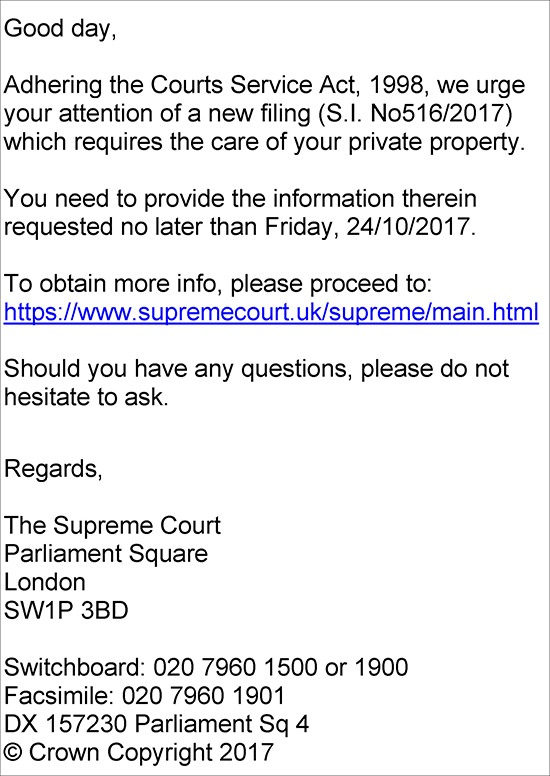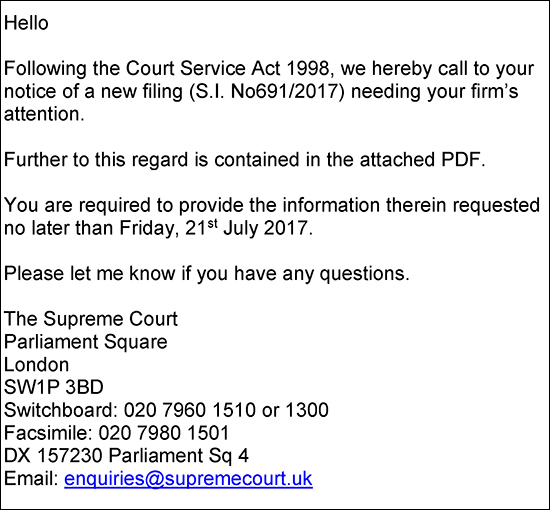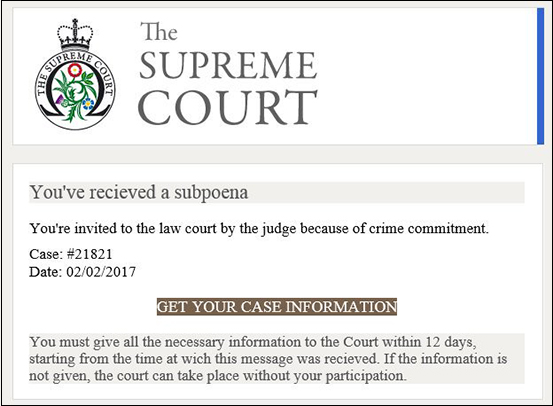Scam emails
Please note that members of the public have received fraudulent e-mails using the UK Supreme Court's name, address and telephone number.
They also sometimes list a member of staff that can be contacted, none of whom exist.
The UK Supreme Court will not send e-mails to any member of the public about a legal matter, unless their case was scheduled to come before the Court, which could only occur if the matter has already been heard at the High Court and/or the Court of Appeal.
These e-mails take different forms, but they usually ask the recipient to click on a link, which could leave a device more vulnerable to a virus or other malware.
We strongly recommend that you do not click on any links, delete the e-mail and block any future messages from that source.
If you have already clicked on the enclosed link, then we suggest you scan your phone/computer for possible viruses.
Please note that the Supreme Court is not able to provide any specific technical advice.
There may be other e-mails and/or documents purporting to be about job offers, property or inheritance, none of which are valid. The UK Supreme Court has nothing to do with financial transactions of this kind.
Contacts
If you have any queries about a communication purporting to be from the UK Supreme Court, you can contact us at:
or you can report to the police's "Action Fraud" line at
Examples of Scam emails


